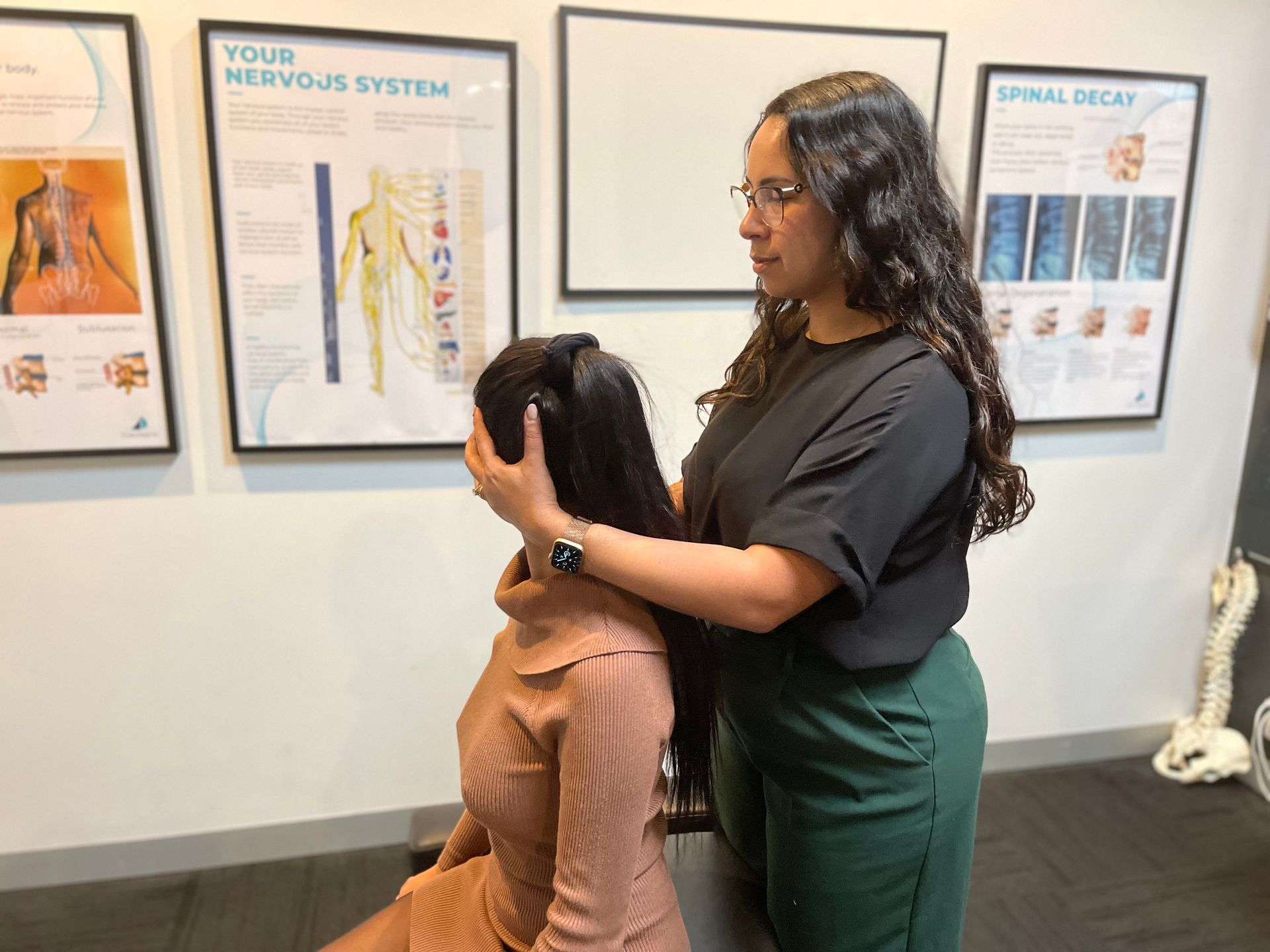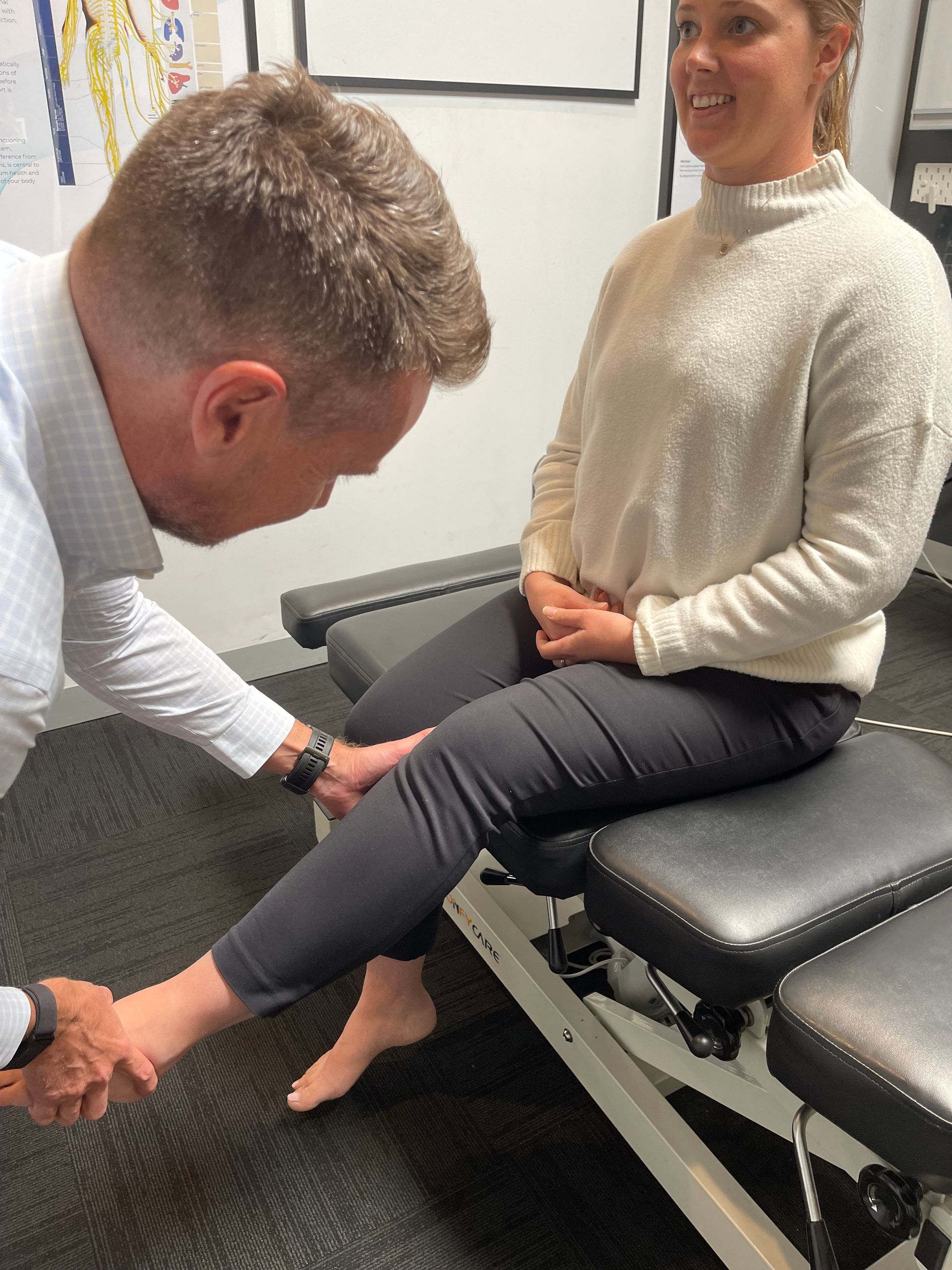How Many Visits Can You Have On Medicare Care Plan
As someone who is constantly seeking innovative healthcare solutions, I understand the importance of maximizing the benefits provided by Medicare Care Plans. One question that often arises is how many visits can you have on Medicare Care Plan.
Well, let me tell you, my fellow forward-thinkers, that the answer lies in navigating the diverse options and understanding the guidelines set forth by Medicare. When it comes to Medicare Care Plans, the number of visits you can have depends on various factors such as your specific plan and medical conditions. These plans offer a comprehensive range of health services covered, ensuring that you receive the necessary care for your unique needs.
From preventive screenings to specialist consultations and even hospital stays, these plans are designed to provide holistic care. But here's where innovation truly shines - through optimization! By understanding and utilizing your care plan benefits effectively, you can make sure every visit counts towards improving your health outcomes.
With an array of treatment options available and a referral process in place to connect you with specialists when needed, Medicare Care Plans empower you to take control of your healthcare journey.
So let's dive deeper into this topic together and explore how we can make the most out of our Medicare Care Plan benefits!
Medicare Plan Overview
Medicare plans detail coverage and benefits. Medicare care plans cover a set number of health service visits per year. These visits can include doctor's appointments, specialist consultations, and allied health sessions like physical or occupational therapy. Medicare care plans vary in visit count.
Note that patient eligibility affects Medicare care plan visit limits. Some plans limit the number of visits per year or require prior authorization for certain services. Understanding your plan's restrictions is essential to maximizing coverage.
For instance, a Medicare Advantage plan, also known as Part C, may offer discounted or unlimited visits for certain services. Beneficiaries often receive innovative solutions and expanded options from these plans.
Understand your Medicare care plan's visit limits and guidelines. Knowing your Medicare or Medicare Advantage plan's visit limit will help you make healthcare decisions.
Health Services Covered

Medicare ensures worry-free health care. Medicare provides a variety of medical services.
Medicare covers chronic disease treatment and preventive care. Medicare covers regular checkups, screenings, and specialized treatments.
Medicare covers allied health services, which is a key feature. Physiotherapy, occupational therapy, and speech therapy are examples. If you need rehabilitation or help improving your physical abilities, these allied health services can help. Medicare pays for these services, so you can heal without worrying about money.
Chronic disease management is covered by Medicare, along with allied health services. Chronic conditions like diabetes or heart disease require healthcare management. Medicare covers medications, regular monitoring, and access to chronic disease specialists.
Medicare also covers hospitalizations, surgeries, mental health services, and emergency care. This comprehensive coverage ensures you have the support and resources to handle any medical situation quickly and efficiently.
Medical Conditions Eligible
The Medicare Care Plan provides healthcare to people with a variety of conditions. The Medicare Care Plan covers doctor visits for chronic and acute illnesses. These visits may include consultations with doctors, specialists, and other healthcare professionals who manage and treat various medical conditions. Medicare beneficiaries benefit from regular primary care visits. Regular visits are necessary to monitor medical conditions and ensure proper treatment.
Depending on health needs, patients may also require specialist consultations. Consultants like cardiologists, endocrinologists, and neurologists can help manage complex medical conditions.
Along with doctor visits, Medicare covers allied health sessions. These sessions involve seeing physiotherapists, dietitians, and occupational therapists who treat specific medical conditions. People with mobility issues may benefit from physiotherapy to improve their strength and flexibility. Dietitians can also help those with dietary restrictions create a meal plan.
The Medicare Care Plan covers these visits and allied health sessions, but out-of-pocket costs may apply. However, Medicare rebates are often available for eligible services. This eases the financial burden of managing chronic conditions.
With access to comprehensive healthcare services under the Medicare Care Plan, people with various medical conditions can seek treatment without worrying about high costs or limited visit allowances. This plan provides regular doctor visits and specialized allied health care to help everyone manage their unique medical conditions.
Treatment Options Available

This comprehensive healthcare plan provides a wide range of treatment options to ensure patients receive the care they need. The Medicare Care Plan offers four main treatments:
- Visits to General Practitioners (GPs): Medicare allows individuals to visit GPs for consultations and treatment. These visits are essential for diagnosing and managing various medical conditions. GPs play a crucial role in providing primary healthcare services, prescribing medications, and coordinating referrals to specialists when needed.
- Medicare Rebates: Another valuable aspect of the Medicare Care Plan is that it offers rebates on certain medical treatments and procedures. This means that individuals can receive financial assistance from Medicare when they undergo eligible treatments such as surgeries, diagnostic tests, or specialist consultations. The availability of these rebates helps reduce the financial burden associated with receiving necessary medical care.
- Allied Health Sessions: The Medicare Care Plan also covers a range of allied health services, including physiotherapy, occupational therapy, psychology sessions, and more. These sessions aim to improve individual well-being by addressing specific health issues or providing ongoing support for chronic conditions. By incorporating allied health services into the care plan, individuals have access to a holistic approach that considers both physical and mental health needs.
- Specialist Consultations: In cases where specialized expertise is required for diagnosis or treatment, the Medicare Care Plan allows individuals to seek consultations with specialists such as cardiologists, dermatologists, or neurologists. Having access to these specialists ensures that patients receive appropriate care tailored to their specific medical condition.
Medicare Care Plan treatments cover a wide range of medical conditions. Let's look at how referrals can access these options.
Referral Process
To get these treatments, you must understand the referral process. Your Medicare care plan's visits and health services depend on referrals. Your PCP will guide this journey. They'll evaluate your health and recommend a specialist or other provider. This referral process maximizes Medicare benefits and ensures proper care.
Your primary care doctor will recommend a referral to Medicare after determining its need. Medicare needs this step to determine the medical necessity of the service or specialist visit. Ensuring high-quality care and avoiding unnecessary Medicare-covered visits.
After Medicare approves your referral, you can schedule your specialist visit or other health services. Medical necessity and Medicare plan coverage limitations determine the number of allowed visits. Tracking these visits helps you stay within your plan's limits.
Understanding the referral process is essential to using Medicare's treatment options. Following this process lets you make informed decisions about specialized care or additional health services when needed.
Number Of Allowed Visits

To ensure you receive the right care and maximize your Medicare benefits, your visit limit depends on several factors. The annual health visit limit is important. Medicare covers up to five allied health sessions per year, including physiotherapy, occupational therapy, and speech pathology. These sessions improve your health and help you manage chronic diseases.
Besides the number of visits, team care arrangements also affect the number of medical visits. These arrangements allow a team of healthcare professionals to coordinate and provide comprehensive care for complex patients. A more holistic and tailored treatment plan may involve multiple visits across specialties with this approach.
The number of allowed visits depends on your Medicare plan and other coverage. We recommend reviewing your plan's documentation or contacting your insurance provider to clarify your coverage.
Obtaining an extended referral from your primary care physician or Medicare approval for medical necessity may allow you to request additional visits. These options may allow you to schedule additional visits for chronic condition management.
Obtaining Additional Visits
Obtaining additional visits can maximize your healthcare benefits and ensure quality care. You may know that Medicare limits the number of visits for certain services. Additional visits are available if needed.
First, Medicare care plans allow different numbers of visits depending on the plan and service. Some plans limit physical therapy or mental health visits per year. To find out how many visits are included, check your plan's coverage details or contact your insurance provider.
Ask your insurance provider for an exception to cover additional Medicare visits. You can ask your insurer for an exception. This requires medical documentation from your doctor justifying additional visits. Your insurance company will then decide whether to approve the request. Another option is to use community health centers or clinics that offer income-based discounts or free services. These facilities often offer affordable healthcare to those without traditional insurance or who have exceeded their visit limits.
Effective healthcare management requires knowing how many Medicare visits you can have. Requesting exceptions or using alternative resources can help you get the care you need without exceeding coverage limits if you need more visits.
Coverage Limitations

Know your Medicare coverage limits to make informed healthcare decisions. Medicare has limitations on the number of visits you can have. Understanding these limitations helps you manage and plan your healthcare. There are three main Medicare coverage limitations:
- Limited number of visits: Medicare sets specific limits on the number of visits covered for certain services or treatments. For example, there may be a cap on the number of physical therapy sessions or mental health counseling sessions that are covered each year. It's important to check with your specific plan to determine what those limits are for your particular health condition.
- Medical necessity requirements: In order for a visit or treatment to be covered by Medicare, it must meet certain medical necessity criteria. This means that the service or treatment must be deemed necessary and appropriate for treating your specific health condition by a healthcare professional. It's essential to work closely with your doctor to ensure that the visits you require meet these criteria and will be covered by Medicare.
- Prior authorization requirements: Some services or treatments may require prior authorization from Medicare before they'll be covered. This means that you'll need to get approval from Medicare before receiving certain types of care. It's crucial to understand if any prior authorization requirements apply to your care plan so that you can take the necessary steps in advance.
Knowing these coverage limitations can help you navigate your Medicare care plan and get the right number of visits and treatments for your health.
Eligibility Criteria
To receive additional coverage, individuals must meet Medicare's eligibility requirements. These criteria ensure Medicare benefits are available to those who need them.
Eligibility depends on the care plan and visits needed. To qualify for a Medicare plan, enroll in Medicare. Being a U.S. citizen or legal resident and meeting age or disability requirements are required. After meeting these eligibility requirements, you can compare care plans.
Each Medicare plan has different visit and coverage rules. Plans may limit the number of visits covered in a given time period, while others do not. Check each plan's visit limit before choosing.
A Medicare care plan should meet your specific healthcare needs as well as general eligibility criteria. If you anticipate frequent visits or specialized treatments, choose a plan with more comprehensive coverage.
Patient Rights And Responsibilities

To maximize your Medicare coverage, know your patient's rights and responsibilities. Patient rights are crucial to Medicare care. Respect, dignity, privacy, and healthcare decisions are among these rights. Knowing and exercising these rights can help you get the best care during your visits.
Know your responsibilities as well as your patient rights. Medicare beneficiaries must provide accurate medical history and health status information. This informs healthcare providers' treatment decisions. You must also ask questions and communicate with your healthcare team. Actively participating in your care can help you get the best treatment and results.
Understanding your patient rights and responsibilities is essential for using Medicare care plan benefits wisely. You can manage your healthcare by exercising your rights and responsibilities. Actively managing your health, whether scheduling appointments or discussing treatment options with doctors, improves outcomes.
Knowing your Medicare patient rights lets you confidently use all your care plan benefits. Know your Medicare rights and responsibilities when accessing healthcare. This knowledge will empower you as a patient to maximize the value of each Medicare visit without limiting your future care plan benefits.
Utilizing Care Plan Benefits
How many visits can you have on Medicare Care Plan? Actively using Medicare benefits can open up new health outcomes. Your care plan gives you a certain number of visits that can improve your health. These visits allow you to address health issues and receive treatment. Visits to your primary care physician for regular checkups or a specialist for a specific condition ensure proactive health management.
Utilizing Medicare care plan benefits lets you get needed healthcare without high out-of-pocket costs. Use this opportunity to explore the plan's options. Schedule mammograms or colonoscopies to detect issues early. Use covered physical therapy and mental health counseling if needed. Take advantage of these benefits to improve your health.
Incorporating an unordered 3 item bullet list:
- Attend regular check-ups with your primary care physician to monitor and manage any chronic conditions.
- Seek specialized treatment from experts in various fields when necessary.
- Take advantage of preventive screenings and vaccinations that are covered under your Medicare care plan.
You ensure no health issue goes untreated by actively using Medicare care plan visits. This proactive approach empowers you to manage your health and improve outcomes. So schedule those appointments and explore your care plan's services
Navigating Care Plan Options

Understanding your Medicare care plan's options can be overwhelming, but it's essential to maximizing benefits. Medicare plans offer different visit options based on your needs. Some plans allow unlimited visits for certain services, while others limit them.
It's crucial to carefully compare plan options to find one that meets your healthcare needs. Understanding Medicare care plan coverage factors is crucial when considering visits. Some plans require primary care physician referrals or prior authorization for specialist visits or treatments. Others may require you to choose from specific provider networks for full coverage.
By understanding these details, you can navigate your care plan options and make informed healthcare decisions. Consider any additional benefits or resources in addition to your Medicare care plan's visit limitations and requirements. Telehealth appointments and wellness programs can improve your healthcare experience with some plans. These services can maximize your care plan's value and help you manage your health in new ways. It may seem overwhelming to choose a Medicare care plan, but researching and understanding each option will help you choose one that meets your needs. To maximize your benefits, know the number of covered visits and any requirements.
Understanding Medicare Guidelines
Understanding Medicare guidelines is essential for making healthcare coverage decisions. Medicare has limits on how many visits you can have. These guidelines ensure you get the necessary care and manage costs. You can confidently choose a care plan by understanding these guidelines.
Medicare restricts the number of visits covered by different plans. The plan you choose determines the number of visits. Read your plan documents or talk to a representative to understand your Medicare visit limits. This will show you how often you can get medical care without exceeding your coverage.
To understand the visit guidelines, you must know Medicare's rules. Understanding which healthcare providers Medicare covers, what services are medically necessary, and any restrictions is crucial. By understanding Medicare guidelines, you can make better decisions about when and where to get care within your visit limits.
Optimizing Care Plan Benefits

Find ways to maximize Medicare benefits to get the most out of your healthcare coverage. Understanding the number of visits allowed under your Medicare care plan can optimize benefits.
Healthcare service visit limits vary by plan. Knowing these guidelines will help you maximize your visits and get the care you need.
Understand your Medicare plan's services and visit limits to maximize your benefits. Some plans limit specialist visits, and others limit doctor visits per year. Knowing these limits helps you prioritize your healthcare needs and maximize visits.
Understand visit limits and talk to your doctors about maximizing care plan benefits. They can advise you on appointment scheduling and visit utilization. They may also offer alternatives to meet your healthcare needs within visit limits.
Finally, managing your health actively can maximize care plan benefits. This includes preventive measures like annual check-ups and screenings, which Medicare covers at no cost. Addressing health issues early may reduce future healthcare needs and improve visit utilization.
Understanding visit limitations, communicating with doctors, and managing your health are key to maximizing Medicare benefits. Knowing these factors can help you maximize Medicare visits and get comprehensive care.
Final Thoughts
In conclusion, navigating the Medicare Care Plan can be a complex process, but understanding its guidelines and optimizing its benefits is crucial.
With this plan, individuals have access to a range of health services and treatment options for eligible medical conditions. By going through the referral process and utilizing the care plan benefits effectively, one can receive proper care and support. It's important to educate oneself about the specific services covered by Medicare and make informed decisions regarding their healthcare needs.
Overall, with careful planning and utilization of the Medicare Care Plan, individuals can maximize their visits and receive the necessary care they deserve. Now you know how many visits can you have on Medicare Care Plan and schedule your next appointment as soon as possible.
Frequently Asked Questions
Can I Choose My Own Healthcare Provider Under A Medicare Care Plan?
Medicare allows you to choose your doctor. Medicare lets you choose doctors, hospitals, and specialists that meet your needs, which is great. With this level of choice, you can get top-notch care from professionals who share your values. Medicare gives you full control over your healthcare, whether you prefer a traditional doctor-patient relationship or cutting-edge treatments.
What Happens If I Exceed The Number Of Allowed Visits Under My Medicare Care Plan?
If I exceed my Medicare visit limit, there may be consequences. First and foremost, I may have to pay for visits beyond the limit. This can quickly become expensive.
Overcoming the allowed visits could also result in a care plan review and coverage or benefit changes. To stay within my Medicare care plan's limits, I must track my visits and communicate with my doctor. I should consider innovative options like telehealth or preventive care to stay healthy and avoid exceeding visit limits.
Are There Any Restrictions On The Types Of Medical Conditions That Are Eligible For Coverage Under A Medicare Care Plan?
Medicare covers many medical conditions, but not all. Medicare covers many medical conditions, but not all.
Medicare covers medically necessary services and treatments, so the condition must meet certain criteria. Medicare may require certain treatments or procedures.
Always review your Medicare care plan and consult with your doctor to determine coverage for your condition. Knowing these restrictions can help you get the right care and understand any out-of-pocket costs.
Is There A Limit On The Number Of Treatment Options Available Under A Medicare Care Plan?
Medicare plans offer unlimited treatment options. Medicare covers essential medical services to maintain or improve health.
This allows people to choose from medications, therapies, surgeries, and more. Medicare keeps up with medical and technological advances to give beneficiaries access to new treatments that improve their quality of life.
If you want a healthcare plan that embraces innovation and offers many treatment options, Medicare is a great choice.
How Long Does The Referral Process Typically Take when Seeking Specialized Medical Care Under A Medicare Care Plan?
The Medicare referral process for specialized medical care is usually lengthy. It depends on case complexity and specialist availability.
I've found that specialized medical referrals take 2–4 weeks. This time frame allows for assessments and consultations with primary care physicians or other healthcare providers involved in the referral decision.
Stay proactive and communicate with your healthcare team while waiting for the referral to ensure you get the specialized care you need. In today's ever-changing healthcare landscape, innovation is key, so don't be afraid to try new technologies or methods that could speed up this process while maintaining quality.
Latest Articles
Mornington Peninsula
Chiropractic
Just up the road from you...
- Mon - Fri
- -
- Sat - Sun
- Appointment Only
Mornington
03 9787 8518
Rosebud
03 5911 8181
CONDITIONS
LINKS
Our Locations
Designed By Jon Web Design



